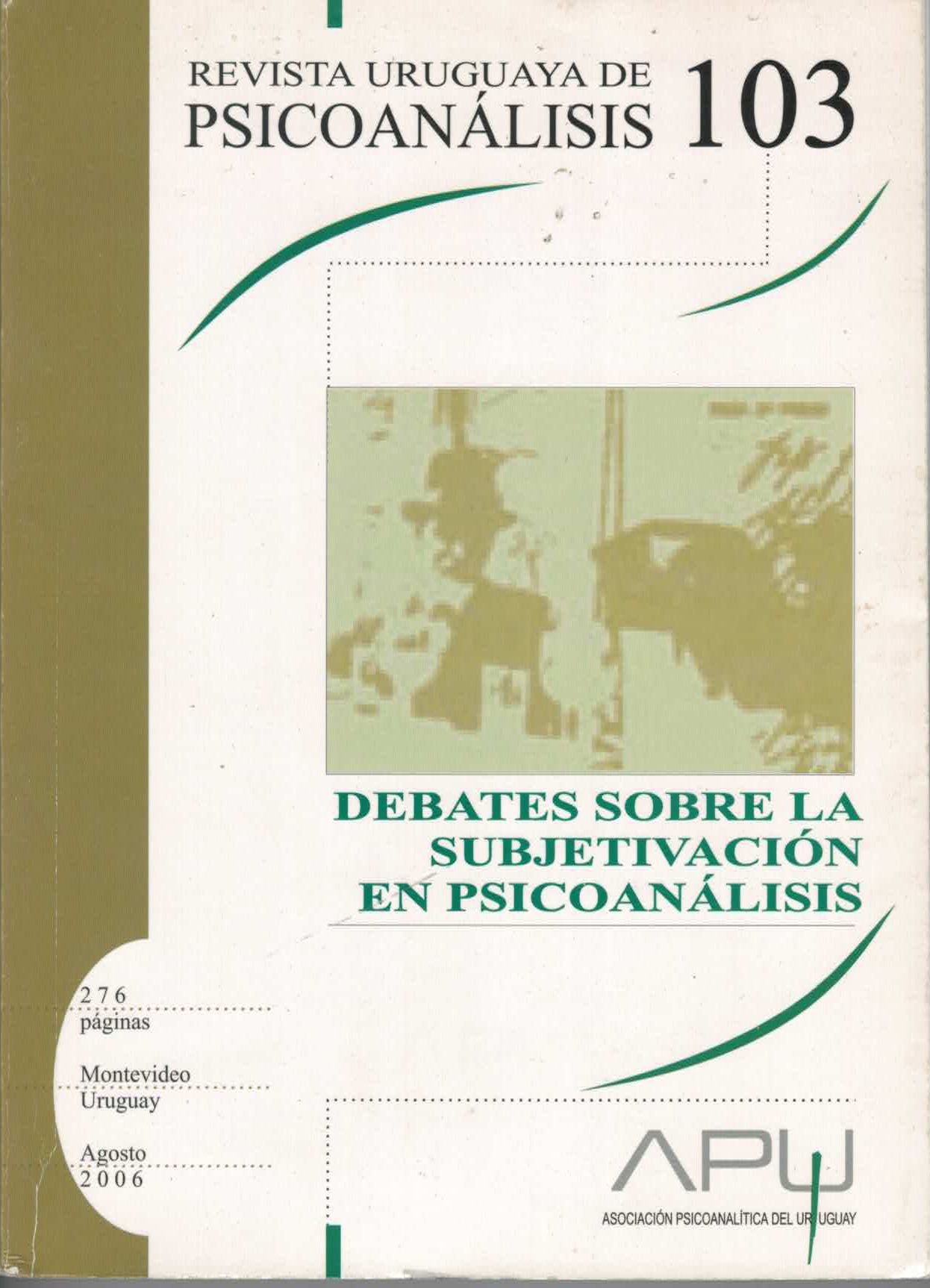Subjectivity and Psychoanalysis. The implication of the psychoanalyst
Keywords:
sujeto, complejo de Edipo, grupo, sociedad, subjetivaciónAbstract
This paper analyzes, in the first place, different possibilities available to establish a relationship between areas of different order
Damián Schroeder such as psychoanalysis and subjectivity. In the second place, the paper deals with new forms of subjectivity and the way in which they question us regarding some of the various conceptions of the Oedipus Complex and the old and new debates it arises. A reference is made to the group and institutional dimensions of subjectivity. Finally, the paper proposes to substitute the concepts of indirect countertransference, and countertransference in a broad sense, for the notion of implication. The analysis of implication means to account for the social, political and economic conditions, for the construction of different “knowledges” and for the technical elements that form any given social practice, among which that of the psychoanalyst is included. The elucidation of such implication is part of the analytic stance and of the power for subjectivization that the analytic experience has
Downloads
References
ALLOUCH, J. (1999) Para introducir el sexo del amo. En: Revista. Litoral, La opacidad sexual Nº 27, Edelp, pp. 47-125.
ANTELME, R. (1957) La especie humana. Montevideo, Trilce,1996.
AULAGNIER, P. (1975) La violencia de la interpretación. Buenos Aires, Amorrortu, 1977.
BARANGER, M. La mente del analista: de la escucha a la interpretación. En: Revista de Psicoanálisis, APA.,Tomo 49, Nº 2, Buenos Aires. 1992,
pp. 223-237.
BLEGER, J. (1966) Psicohigiene y Psicología Institucional. 3a. ed. Buenos Aires, Paidós, 1974.
BLEICHMAR, S. (2004) Límites y excesos de la subjetivación en Subjetividad y Psicoanálisis. La implicación del psicoanalista
psicoanálisis. En: http: //www.apuruguay.org/, ver Trabajos introductorios, 2006, P. 4.
BOSCHAN, PEDRO. (2001) “¿Y ahora qué? Reflexiones sobre la realidad y el tiempo”. En: V Conferencia Interregional de IPA. “Desafíos al
psicoanálisis en el Siglo XXI: Salud mental, sexualidad y realidad social”. Bs. As. Argentina, inédito.
BUSTO, A. (1999) Evolución de la psicoterapia analítica de grupo (APU 1955-1998). Neutralidad, RUP 89, junio 1999.
CHASSEGUET-SMIRGEL, J. (2001). “A propósito de algunas “nuevas” patologías. Las conductas de rasgos autárquicos.” En: “Desafíos al
psicoanálisis en el Siglo XXI: Salud mental, sexualidad y realidad social”. Conferencia Interregional de IPA. Bs. As. Argentina, inédito.
DERRIDA, J. Y ROUDINESCO, É. (2001) Y mañana qué... Buenos Aires, Fondo de Cultura Económico, 2003.
DUFOUR, D.-R. Esta nueva condición humana. Los desconciertos del individuo-sujeto. Le Monde Diplomatique, Edición Cono Sur. Servicio
Info-Dipló / Los Semanales. 11/05/2001
FOUCAULT, M. (1978) La verdad y las formas jurídicas. Madrid, Ed. Gedisa, 1980.
FRANCO, G., Pequeñas histerias, inédito, 2004.
FREUD, S. (1897) Carta 69. En: Fragmentos de la correspondencia con Fliess. Buenos Aires, Amorrortu Editores tomo I, 1982.
——————— (1921) Psicología de las masas y análisis del yo. Bs. Aires, Amorrortu Editores, tomo XVIII, 1982.
——————— (1926) Inhibición, síntoma y angustia. Bs. Aires,Amorrortu Editores, Tomo XX 1982.
GIL, D. y NUÑEZ, S. (2002) ¿Por qué me has abandonado? El psicoanálisis y el fin de la sociedad patriarcal. Montevideo, Ed. Trilce.
GOMEZ MANGO, E. El extranjero en la frontera de lo inhumano. La desolación. Brecha, 12 de marzo de 2004.



 This work is licensed under a
This work is licensed under a 